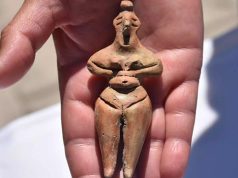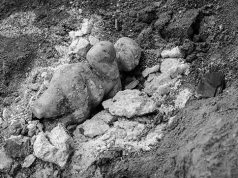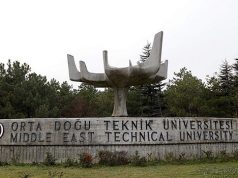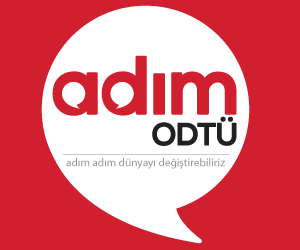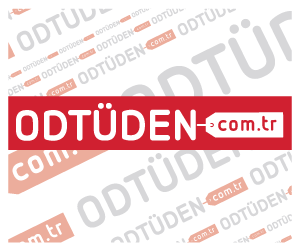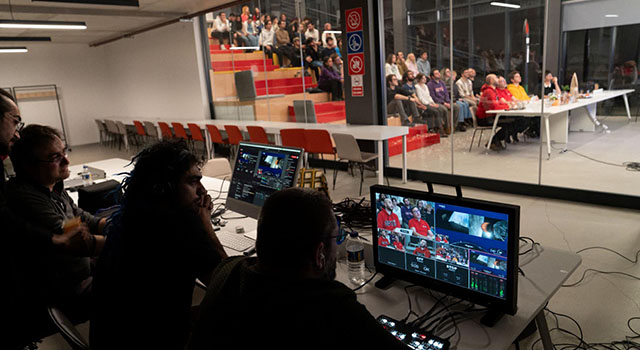
On January 18, 2024, a special program was held by METU Office of Science Communication in collaboration with the Center for Audiovisual Research and Production (GİSAM) to follow the launch of Ax-3 mission that sent our first space traveler, Alper Gezeravcı, into space. The program, broadcast live on YouTube, was attended by students from METU Space Team (METUOR), METU Aerospace Society (ODTÜ HUT), METU Amateur Astronomy Society (ODTÜ AAT), and METU Rocket Society. During the program, Prof. Dr. Oğuz Uzol from the Department of Aerospace Engineering at METU explained the stages of the launch and propulsion systems. Additionally, Prof. Dr. Mustafa Yücel from METU Graduate School of Marine Sciences, Asst. Prof. Dr. Berat Haznedaroğlu from Boğaziçi University Institute of Environmental Sciences, and Prof. Dr. Güneş Esendağlı from Hacettepe University Graduate School of Health Sciences talked about the experiments to be conducted in the microgravity environment of the International Space Station as part of the mission.
Türkmen: “We emphasize the scientific importance of experiments conducted at ISS”
Selçuk Türkmen, one of the members of the METU Office of Science Communication and the host of the program, shared the following information about the AX-3 mission and the crew that it will take to the International Space Station:
“The crew going to the ISS with Axiom Mission 3 consists of four members. Our astronaut Alper Gezeravcı is accompanied by mission commander Michael López-Alegría, mission pilot Walter Villadei, and mission specialist Marcust Wandt. The fact that the number of commercial space missions are increasing indicates the growing diversity of space exploration efforts. Our esteemed astronaut Alper Gezeravcı and his fellow crew members will conduct more than 30 scientific experiments on the ISS. And we would like to particularly emphasize the scientific importance of experiments to be conducted in microgravity environments, specifically on the ISS.”
Following Türkmen’s opening speech, the program continued with the vide interviews conducted before the live broadcast. The first interview featured Prof. Dr. Mustafa Yücel from the Graduate School of Marine Sciences at METU. “We are witnessing a historic moment,” Dr. Yücel stated. He underlined the significance of the microgravity environment experiments that would enable future space travelers and astronauts to stay in space for extended periods and went on to say that our universities have submitted excellent experiments in this regard. Dr. Yücel also informed the audience about his study that combines deep-sea habitats and space exploration.
Following Prof. Dr. Mustafa Yücel’s interview, the program continued with the interviews featuring the project leaders of two experiments, “UzMAn” and “Miyeloid,” which Alper Gezeravcı will conduct on the ISS.
Haznedaroğlu: “This will be the first microalgae-related experiment in this field”
“Uzay Görevlileri için Mikroalgal Yaşam Destek Üniteleri (Microalgal Life Support Units for Space Missions),” or shortly titled as the “UzMAn” project, is led by Asst. Prof. Dr. Berat Haznedaroğlu from Boğaziçi University Institute of Environmental Sciences. Dr. Haznedaroğlu said that this would be the first microalgae-related experiment in this field and shared the following information regarding the purpose of the experiment:
“When the world of photosynthetic organisms are examined, it can clearly be seen that algae are the most efficient organisms in converting carbon dioxide into oxygen because they are oxygen-producing photosynthetic organisms. In fact, algae have the best photosynthetic efficiency. Furthermore, in the formation of the Earth’s atmosphere, approximately sixty to seventy percent of the oxygen comes algae in the seas.
We have sent a total of three eukaryotic microalgae species to the Space Station. Over the course of ten days, Gezeravcı will essentially obtain a growth graph for these three species. They will operate with enriched carbon dioxide because one of the goals is to use the oxygen produced by the algae as a biological system to purify the air for space mission staff. These three species have never been sent to the Space Station before. This means that they will be tested in this regard for the first time. In addition to studying the growth of algae in a microgravity environment, we will also examine their cellular and molecular changes in this period. At the end of ten days, Gezeravcı will open this box and metabolically freeze our algae. In other words, he will preserve all the changes they have gone through in microgravity by freezing them there and bring them back to Turkey.
Esendağlı: “We examine the immune system of astronauts under all stress conditions”
The project titled “Uzay Misyonuna Katılan Bireylerde Radyasyona Maruz Kalmanın Kanser İçin Öncül Lezyonlar Olan Periferik Kandaki Miyeloid-Kökenli Baskılayıcı Hücrelere Etkisinin İncelenmesi (Investigation of the Effect of Radiation Exposure on Peripheral Blood Myeloid-Derived Suppressor Cells, Precursor Lesions for Cancer, in Individuals Participating in Space Missions,)” or shortly named “Miyeloid,” is led by Prof. Dr. Güneş Esendağlı from Hacettepe University Graduate School of Health Sciences. Upon stating that the immune system of astronauts would be examined under all stress conditions with this experiment, Dr. Esendağlı shared the following information:
“Our study focuses on cancer and the immune system. How are the immune systems of astronauts affected under all stress conditions and how can it be related to cancer? We aimed to work on various observational parameters regarding these questions. Immune system cells are primarily associated with the bone marrow, specifically the group of cells called white blood cells circulating in our blood. These cells are among the most frequently renewed cell groups in the bloodstream of our bodies. We are in the process of gaining insights into how the immune system changes with small alterations by examining the bone marrow. All the conditions the astronauts are exposed to during the preparation process and various factors they encounter as they go to the ISS result in significant changes in human physiology. These alterations can directly trigger the immune system. In addition to obtaining data on which direction the immune system is heading in such cases, the cell groups we will examine have not been reported before. Therefore, this study, conducted by Turkish scientists for the first time, will contribute to the literature in the field by adding various new parameters.”
Following Prof. Dr. Güneş Esendağlı’s interview, the program continued as Emre Okutucu, one of the student members of METU Space Team (METUOR), shared their journey of gaining the 2nd place in last year’s International CanSat Model Satellite Competition with their project titled “Küçük Boyutlara Sığabilen, Hafif ve Görevleri Başarıyla Gerçekleştiren Model Uydu Tasarımı (Small-Sized, Lightweight, and Successfully Performing Model Satellite Design.)” Then, Sude Ataseven, another member of METUOR, talked about their group’s latest projects.



